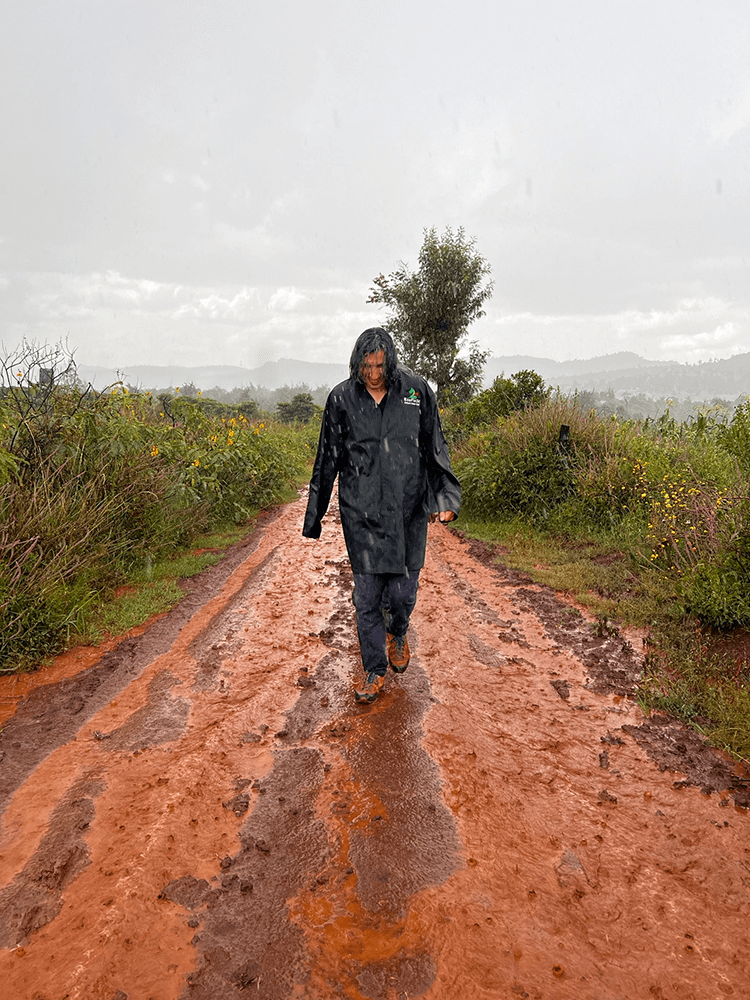As sustainability and environmentally friendly practices gain global attention, Professor Philip Stevenson’s project, Designing and developing plant-based natural product innovations using Croton seed oil, emerges as a leading example of innovation and impact. Recently recognised as a finalist for the Best African Agriculture Knowledge Transfer Partnership (AAKTP) Project Award, this collaboration between academic institutions and commercial partners is setting new standards in sustainable agriculture, particularly in Kenya.

For Professor Stevenson and his team, this recognition is more than just an accolade; it is a validation of their commitment to sustainable agriculture. ‘We are thrilled to be recognised for having delivered on our promise with this project,’ Professor Stevenson shares. This recognition is especially meaningful as it comes at the project’s conclusion, marking the culmination of their efforts and significant achievements.
At the heart of this project is a dynamic partnership involving key stakeholders from both the UK and Kenya. The collaboration features Egerton University as the Kenyan academic partner, EcoFix as the commercial partner in Kenya, and the Natural Resources Institute at the University of Greenwich, alongside Kew Gardens, as the leading UK institutions. This partnership has been instrumental in the project’s success, driving forward a shared vision to innovate within the realm of sustainable, organic agriculture.
One of the key milestones achieved through this collaboration has been the mentoring and support of Research Associate Eric Ngutu. His work has been central to the development of plant-based natural products using Croton seed oil, a resource with significant potential for sustainable farming practices in Kenya. The project’s outcomes reflect a comprehensive approach, including creating a knowledge base for Croton oil processing, a database of its compounds, and a market analysis to identify potential competitors and opportunities.

Despite facing significant challenges, mainly due to budget cuts resulting from the COVID-19 pandemic, which reduced the project's timeline and funding, the team remained resilient. While the shortened timeframe limited their ability to conduct necessary field trials, they pushed forward with other critical aspects of the research. This perseverance paid off, as the project has delivered significant results.
By enhancing the capacity of EcoFix to develop sustainable agricultural technologies, the initiative has opened new revenue streams and increased demand for Croton seed oil. This, in turn, positively impacts the entire value chain, particularly benefiting smallholders who collect Croton nuts. These smallholders—predominantly women and unemployed youths—now have a critical source of income, thus improving their livelihoods and contributing to sustainable farming practices.
Moreover, the discovery of bioactive principles in Croton oil has led to the commercial development of EcoPest 75EC Bio Pesticide by Kapi Chemicals, EcoFix’s primary customer in Kenya. This product not only reduces farmers' reliance on synthetic chemical pesticides but also represents a significant step forward in sustainable agriculture.
Reflecting on the journey, Professor Stevenson expresses deep satisfaction with the project’s tangible outcomes. ‘It takes a lot of hard work to co-develop a multi-partner international project like this that delivers meaningful outcomes for small businesses and smallholder farmers in Kenya,’ he notes. For him, one of the most rewarding aspects was witnessing the growth of the research associate, who developed into an independent scientist with a robust set of skills.
Looking ahead, Professor Stevenson envisions a lasting positive impact on local communities and the agricultural sector in Africa. The project has not only created a sustainable model for agricultural practices but has also empowered smallholders and businesses alike, setting a precedent for future innovations in the field.
As the project garners well-deserved recognition, its story serves as an inspiring example of how collaborative efforts and innovative research can spark sustainable, impactful change. For Professor Stevenson and his team, the journey is far from over, with the long-term vision of transforming agriculture in Africa just beginning to unfold.

